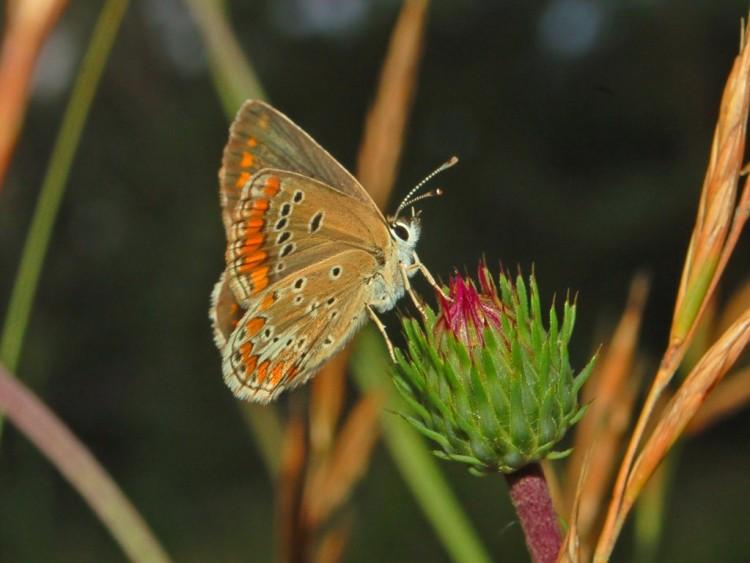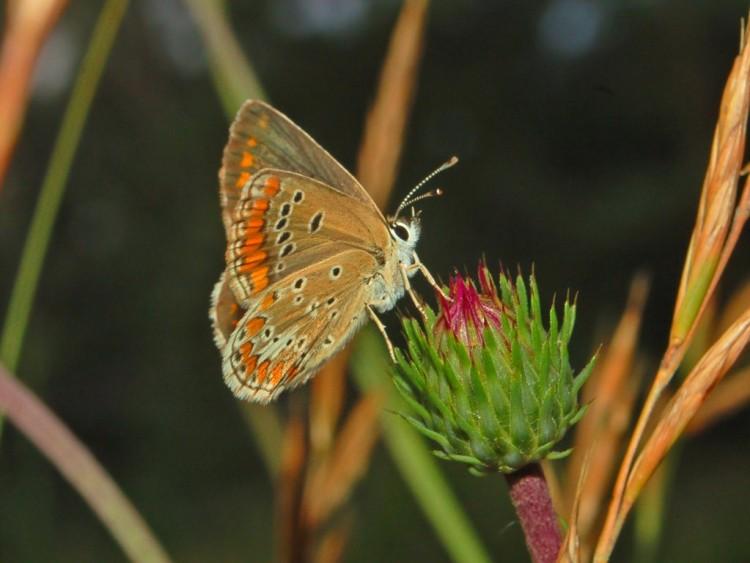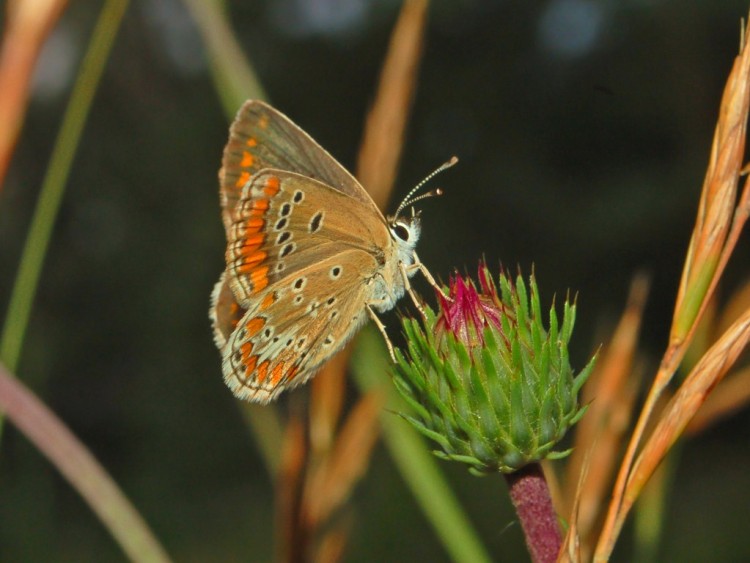The brown argus butterfly, Aricia agestis, has benefited from the UK’s warming climate over the last 20 years or so, according to a new study to be published in Science on May 25.
Despite becoming rare in the 1990s, the species now has a broader distribution extending 79 km (49 miles) further north.
Researchers at the University of York and the Natural Environment Research Council in England looked at data collected on A. agestis sightings and its associated host plants since the 1970s.
In the past, the butterfly was mainly limited to laying its eggs on the rockrose, Helianthemum nummularium, which grows on south-facing slopes that capture more warmth from the sun.
But these days, the caterpillars are more commonly found on geranium plants, particularly dove’s-foot cranesbill, Geranium molle, due to warmer summers allowing female butterflies to be less picky about host plants.
“This study has highlighted that species do not respond to climate change in isolation, and that climate change affects how species interact with one another,” said research leader Rachel Pateman at the University of York in a press release.
By studying such relationships, scientists could mitigate the effects of global warming on more threatened species.
“There will be winners and losers from climate change,” said study co-author Jane Hill, also at York, in the release.
“It is important that we begin to understand how the complex interactions between species affect their ability to adapt to climate change so we can identify those that might be at risk and where to focus conservation efforts.
The Epoch Times publishes in 35 countries and in 19 languages. Subscribe to our e-newsletter.







